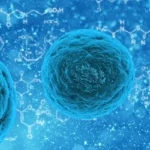The ketogenic (keto) diet has been studied for its potential benefits in cancer treatment. Here are some key findings from scientific research:

- Starving Cancer Cells: Cancer cells often rely on glucose for energy. The keto diet, which is low in carbohydrates, reduces glucose availability, potentially starving cancer cells and slowing their growth12.
- Enhancing Treatment Efficacy: Some studies suggest that the keto diet may enhance the effectiveness of traditional cancer treatments like chemotherapy and radiation. By altering the metabolic environment, the diet may make cancer cells more susceptible to these treatments2.
- Reducing Tumor Growth: Research on animal models has shown that the keto diet can reduce the growth of certain types of tumors, such as those in the brain and pancreas3. However, these findings are still being explored in human studies.
- Improving Quality of Life: Some cancer patients on the keto diet have reported improved quality of life, including better energy levels and reduced inflammation1. This can be particularly beneficial during the physically taxing periods of cancer treatment.
- Potential Risks: It’s important to note that the keto diet may also pose risks, such as the development of cachexia, a wasting syndrome that causes loss of muscle and fat3. Therefore, it should be followed under medical supervision.
While these findings are promising, more high-quality clinical trials are needed to fully understand the benefits and risks of the keto diet for cancer patients2.
If you’re considering the keto diet as part of cancer treatment, it’s crucial to consult with your healthcare provider to ensure it’s appropriate for your specific situation.
1: SpringerLink 2: MDPI 3: Healthline